Hyundai i10 vs Jeep Renegade – Which car suits you better?
Two cars, one duel: Hyundai i10 meets Jeep Renegade.
Which one wins in performance, efficiency and value for money? Find out now!
Costs and Efficiency:
Looking at overall running costs, both models reveal some interesting differences in everyday economy.
Hyundai i10 has a convincingly advantage in terms of price – it starts at 14600 £, while the Jeep Renegade costs 26700 £. That’s a price difference of around 12095 £.
Fuel consumption also shows a difference: Jeep Renegade manages with 2.10 L and is therefore clearly more efficient than the Hyundai i10 with 4.90 L. The difference is about 2.80 L per 100 km.
Engine and Performance:
Power, torque and acceleration are the classic benchmarks for car enthusiasts – and here, some clear differences start to show.
When it comes to engine power, the Jeep Renegade has a significantly edge – offering 240 HP compared to 90 HP. That’s roughly 150 HP more horsepower.
In acceleration from 0 to 100 km/h, the Jeep Renegade is convincingly quicker – completing the sprint in 7.10 s, while the Hyundai i10 takes 11.40 s. That’s about 4.30 s faster.
In terms of top speed, the Jeep Renegade performs slightly better – reaching 199 km/h, while the Hyundai i10 tops out at 175 km/h. The difference is around 24 km/h.
There’s also a difference in torque: Jeep Renegade pulls clearly perceptible stronger with 240 Nm compared to 172 Nm. That’s about 68 Nm difference.
Space and Everyday Use:
Whether family car or daily driver – which one offers more room, flexibility and comfort?
Both vehicles offer seating for 5 people.
In curb weight, Hyundai i10 is decisively lighter – 996 kg compared to 1420 kg. The difference is around 424 kg.
In terms of boot space, the Jeep Renegade offers distinct more room – 351 L compared to 252 L. That’s a difference of about 99 L.
In maximum load capacity, the Jeep Renegade performs somewhat better – up to 1297 L, which is about 247 L more than the Hyundai i10.
When it comes to payload, Jeep Renegade evident takes the win – 570 kg compared to 423 kg. That’s a difference of about 147 kg.
Who comes out on top?
Overall, the Jeep Renegade shows itself to be outperforms in nearly all aspects and secures the title of DriveDuel Champion.
It convinces with the more balanced overall package and proves to be the more versatile choice for everyday use.
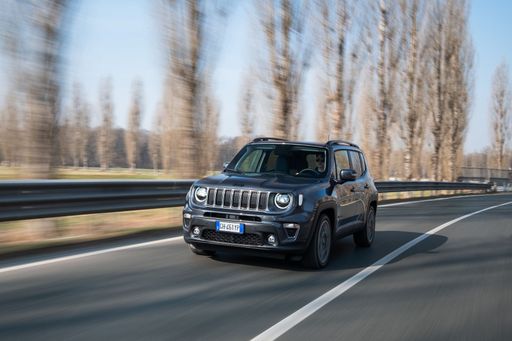
Jeep Renegade
Hyundai i10
The Hyundai i10 impresses with its compact design, making it an ideal choice for navigating through busy urban environments. Its interior is surprisingly spacious, offering drivers and passengers comfort beyond what one might expect from a city car. The model combines efficiency and practicality, making it an attractive option for those seeking both economy and functionality in their daily commute.
details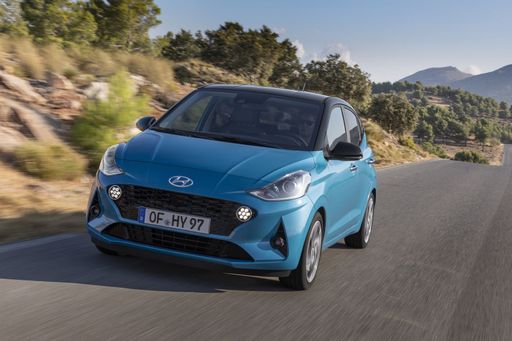 @ hyundai.news
@ hyundai.news
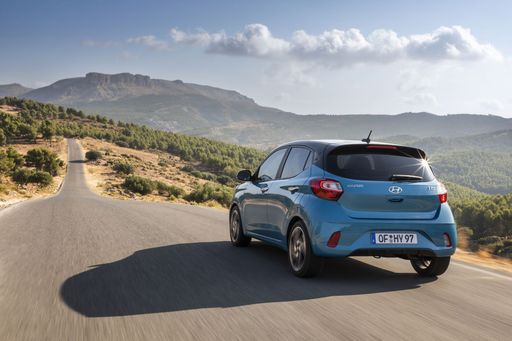 @ hyundai.news
@ hyundai.news
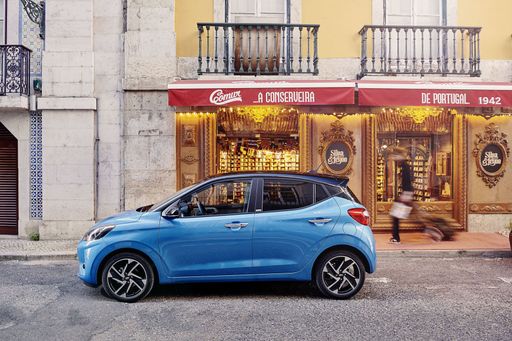 @ hyundai.news
@ hyundai.news
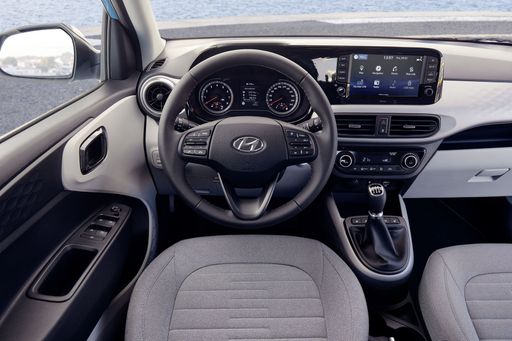 @ hyundai.news
@ hyundai.news
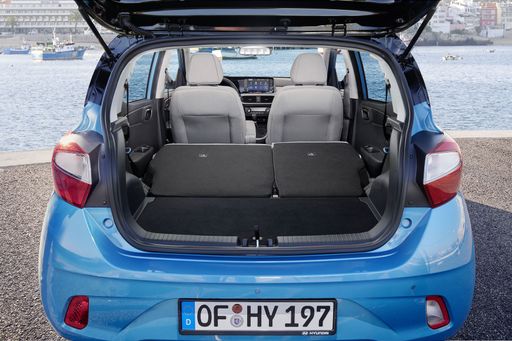 @ hyundai.news
@ hyundai.news
Jeep Renegade
The Jeep Renegade stands out with its rugged design, embodying the adventurous spirit that the brand is known for. This compact SUV offers a comfortable and versatile interior, making it suitable for both city driving and off-road escapades. With its robust performance capabilities, the Renegade ensures a confident and engaging driving experience across diverse terrains.
details @ media.stellantis.com
@ media.stellantis.com
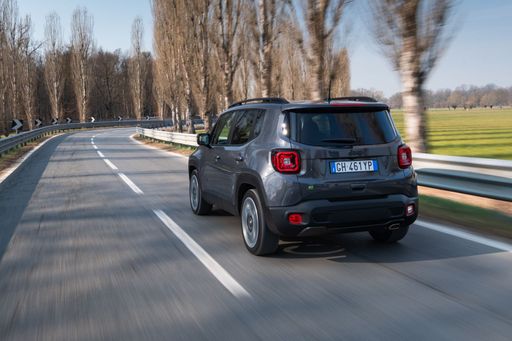 @ media.stellantis.com
@ media.stellantis.com
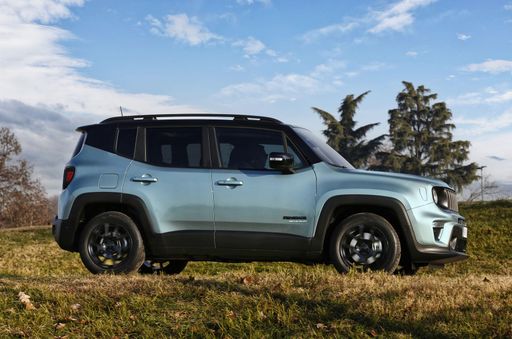 @ media.stellantis.com
@ media.stellantis.com
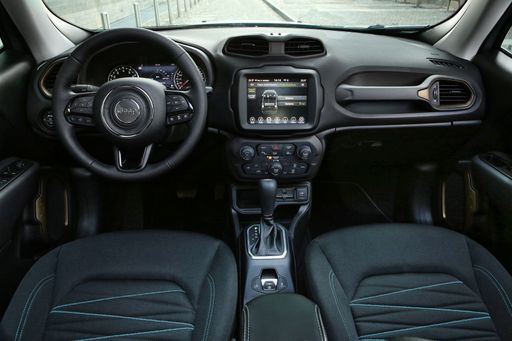 @ media.stellantis.com
@ media.stellantis.com
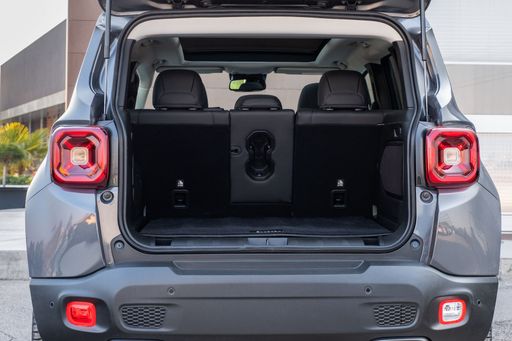 @ media.stellantis.com
@ media.stellantis.com

|

|
|
|
|
Costs and Consumption |
|
|---|---|
|
Price
14600 - 19000 £
|
Price
26700 - 39200 £
|
|
Consumption L/100km
4.9 - 5.5 L
|
Consumption L/100km
2.1 - 5.5 L
|
|
Consumption kWh/100km
-
|
Consumption kWh/100km
-
|
|
Electric Range
-
|
Electric Range
36 km
|
|
Battery Capacity
-
|
Battery Capacity
-
|
|
co2
110 - 124 g/km
|
co2
48 - 125 g/km
|
|
Fuel tank capacity
36 L
|
Fuel tank capacity
36 - 48 L
|
Dimensions and Body |
|
|---|---|
|
Body Type
Hatchback
|
Body Type
SUV
|
|
Seats
4 - 5
|
Seats
5
|
|
Doors
5
|
Doors
5
|
|
Curb weight
996 - 1099 kg
|
Curb weight
1420 - 1770 kg
|
|
Trunk capacity
252 L
|
Trunk capacity
330 - 351 L
|
|
Length
3670 - 3675 mm
|
Length
4236 mm
|
|
Width
1680 mm
|
Width
1805 mm
|
|
Height
1480 - 1483 mm
|
Height
1684 - 1718 mm
|
|
Max trunk capacity
1050 L
|
Max trunk capacity
1277 - 1297 L
|
|
Payload
344 - 423 kg
|
Payload
545 - 570 kg
|
Engine and Performance |
|
|---|---|
|
Engine Type
Petrol
|
Engine Type
Petrol MHEV, Plugin Hybrid
|
|
Transmission
Manuel, Automatic
|
Transmission
Automatic
|
|
Transmission Detail
Manual Gearbox, Automated Manual
|
Transmission Detail
Dual-Clutch Automatic, Automatic Gearbox
|
|
Drive Type
Front-Wheel Drive
|
Drive Type
Front-Wheel Drive, All-Wheel Drive
|
|
Power HP
63 - 90 HP
|
Power HP
130 - 240 HP
|
|
Acceleration 0-100km/h
11.4 - 18.4 s
|
Acceleration 0-100km/h
7.1 - 9.7 s
|
|
Max Speed
143 - 175 km/h
|
Max Speed
191 - 199 km/h
|
|
Torque
93 - 172 Nm
|
Torque
240 Nm
|
|
Number of Cylinders
3 - 4
|
Number of Cylinders
4
|
|
Power kW
46 - 66 kW
|
Power kW
96 - 177 kW
|
|
Engine capacity
998 - 1197 cm3
|
Engine capacity
1332 - 1469 cm3
|
General |
|
|---|---|
|
Model Year
2024
|
Model Year
2024
|
|
CO2 Efficiency Class
C, D
|
CO2 Efficiency Class
D, B
|
|
Brand
Hyundai
|
Brand
Jeep
|
Is the Hyundai i10 offered with different drivetrains?
The Hyundai i10 is offered with Front-Wheel Drive.
The prices and data displayed are estimates based on German list prices and may vary by country. This information is not legally binding.
